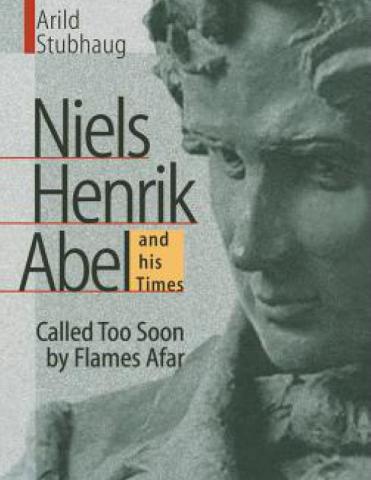The History of the Abel Prize
The Abel Prize is awarded annually to outstanding international mathematicians. The prize was established by the Norwegian Government in 2002, and is managed by The Norwegian Academy of Science and Letters.
It took more than 100 years to have a prize named after the mathematician Niels Henrik Abel. The first eager proponent of establishing an Abel Prize was the mathematician Sophus Lie, Norway's other world-renowned mathematician. Before his death in 1899, one of the last things he used his international prestige for was to gather support for establishing a fund that would award an Abel Prize every five years for outstanding work in pure mathematics. Lie's effort was, by all accounts, inspired by the ongoing collection for the Nansen Fund and certainly by the fact that Alfred Nobel's plans for annual prizes, made known in 1897, lacked a prize in mathematics.
New Prize died along with the union
Although the support from the leading centres of mathematics in Europe was overwhelming, the contacts and promises for support were tied too much to Sophus Lie personally. Therefore, when he died, the effort died too. Not until the centenary celebration in 1902 did King Oscar II become interested in a prize in Abel’s honour. In close association with the Science Society of Christiania, today the Norwegian Academy of Science and Letters, the mathematicians Carl Størmer and Ludvig Sylow drew up statutes and rules for this prize.
However, the dissolution of the union between Sweden and Norway in 1905 put an end to any further plans. Fridtjof Nansen, the polar explorer, regretted that even with contributions from mathematics circles abroad, it was financially impossible for Norway to establish an Abel fund on its own. In a letter in 1906 to the mathematician Elling Holst he added: "The Abel Prize promised by blessed King Oscar went to heaven with the Union."
Commemorated on Norwegian stamps
On the occasion of the centenary of his death in 1929, Abel was commemorated on Norwegian stamps, the first non-royal after Henrik Ibsen to be so honoured. In 1948, Norges Bank printed Abel's portrait on the obverse of the 500-krone banknote. And Abel's memory was kept alive in subsequent banknote and stamp issues. When the International Mathematical Union, with UNESCO support, designated 2000 as the "World Mathematical Year", Abel was Norway's leading logo. Abel's international position and his life and work were also at the heart of the efforts leading up to the bicentenary of Abel's birth. The objective of a number of national and international efforts aimed at the profession, schools and society at large was to create a broader appreciation for the importance of mathematics and science for today's society.

Prize idea brought back to life
At a meeting in August 2000 between Abel's biographer Arild Stubhaug and the CEO of Telenor, Tormod Hermansen, events from a century earlier were discussed and the plans for a major international Abel Prize dusted off. Hermansen briefed the Ministry of Education, Research and Church Affairs about the idea, and Stubhaug brought the matter before the Department of Mathematics at the University of Oslo. After an invitation from Arne Bang Huseby, the academic head of department, and Yngvar Reichelt, the administrative head of department, Hermansen, along with his secretary, Kjell Stahl, attended a meeting at the Department of Mathematics in March 2001.
Here a working group was appointed, the Working Group for the Abel Prize, consisting of professors Jens Erik Fenstad, Arnfinn Laudal and Ragni Piene, administrative head of department Yngvar Reichelt, lecturer Nils Voje Johansen and the author Arild Stubhaug. From then on all parties involved worked intensely on the matter. Members of the Storting and key players in academic, business and cultural circles were briefed on the plans for an Abel Prize, and feedback was entirely positive. Declarations of support also came from major international mathematics organizations. On 23 May the Working Group for the Abel Prize sent the prime minister its proposal to establish an Abel Prize.
Fund and Prize in place
Then on 23 August 2001, during a speech on the Blindern campus of the University of Oslo, Prime Minister Jens Stoltenberg announced that the Government would establish an Abel Fund worth NOK 200 million. He emphasised the broad political consensus regarding the proposal and hoped that an annual Abel Prize would strengthen and inspire teaching as well as scientific efforts. The incoming Bondevik II government upheld the proposal. The Storting(Parliament) agreed with the government's proposal and the award was established in 2002.
The first Abel Prize laureate was Jean-Pierre Serre in 2003.
In 2019 the prize money was increased to 7,5 million NOK.